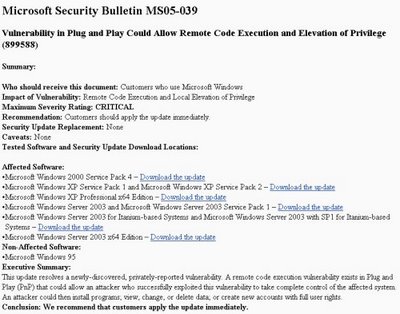Target: Internet Explorer
Go where the people are.
That's the philosophy of Target, IKEA, Staples and every major retailer and advertiser. It's such a good and profitable philosophy, it's been adopted by spammers, hackers and cyberscum.
It makes good sense too. Everyone wants to get the most bang for their buck. And there's only so much buck to go around. So, do you put your message in front of 500,000 people when you can just as easily put your message in front of 5 million people?
It's common sense. Advertisers and cyberscum alike make the smart choice - and put their message in front of as many people as possible.
Let's look at it from the perspective of the criminal. If lots of people are using one particular type of software, that's the software that they are going to target in their attacks.
That's why Microsoft is exploited so frequently. Lots of people give Microsoft lots of grief, and while I may agree they deserve much of it, they don't deserve all of it. Most cyber criminals focus all their time and resources to cash in on Microsoft weaknesses because that's where the people are.
That's why you need to go where the people aren't. Take Microsoft's Internet Explorer. It's been the target of so many attacks, you're really taking a lot of risk if you continue to use it. Especially when there are other excellent and safer options available.
If you want to surf the Net more securely, check out my personal recommendation - Mozilla Firefox. It's safer (less people) and it's free!
To Your Safe Surfing,
. . . Stephanie
technorati tags:Microsoft, Internet+Security, Computers, Computers+Internet, Stephanie+Trahd
